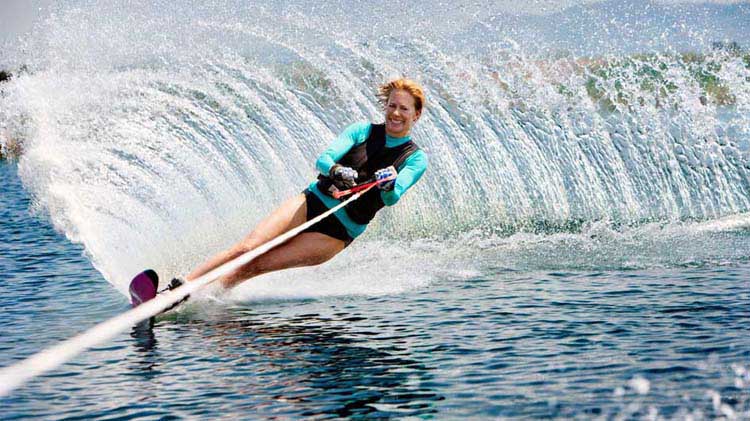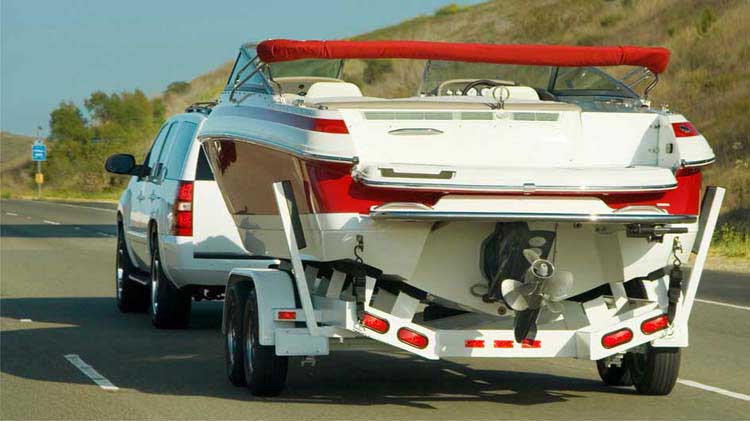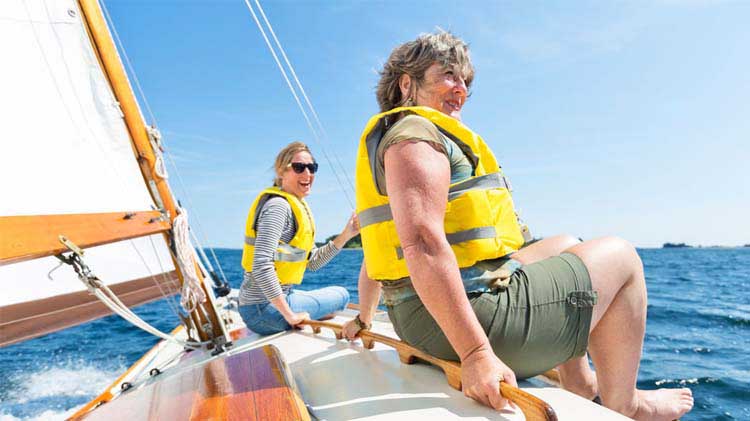Water ski and jet ski safety tips
Discover ways to water ski or jet ski safely to help avoid injury.
Whether you’re getting ready to ride a jet ski or go water skiing for the first time or the hundredth — awesome! Water skiing can be a lot of fun, and there are great places to jet ski all over the United States. But before reaching for the throttle or skis, you want to be prepared. The more prepared you are, the more fun you can safely have on the water. Review these jet ski and water ski safety tips to help get you started.
Water sports safety tips
General tips for water sports safety
- Consider taking a U.S. Coast Guard-approved boating safety course. These courses can be a great way to familiarize yourself with safety procedures with expert teachers.
- Provide Coast Guard-approved flotation devices for the operator and every passenger — life jackets must be worn.
- Don't participate in high-speed water sports, especially in low-light conditions or after dark.
- Don't ski if you are under the influence of alcohol or drugs.
Jet ski safety tips
- Ensure the jet ski is registered and the registration numbers are visible.
- Always let someone know where you're going before you head out.
- Do not run your jet ski in shallow water — check that the water is within the minimum operational depth for your jet ski. Typically, this is three feet, but consult your owner’s manual for your specific watercraft.
- If you begin to fall, don’t attempt to hang on. Try to follow the momentum safely and get clear of the watercraft.
- Avoid dangerous maneuvers such as using another watercraft's wake as a ramp.
Water ski safety tips
- Consider only boating during good weather.
- Have a designated spotter on the boat to help keep an eye on the person skiing.
- Know basic boating rules such as overtaking another vessel and right of way rules, as well as any rules, ordinances or regulations specific to the area you’re operating in.
- When you're ‘down’ in the water but no longer connected to the boat, hold up a ski to help make yourself visible.
- Don't approach or board the boat until the engine is off.
Preparation and operation
General tips for skiiing
- Do not exceed the maximum seat capacity of your vessel.
- Practice loading and unloading the watercraft from the trailer.
- Familiarize yourself with boating knots and practice securing a rope to your boat or jet ski regularly.
Jet ski preparation and operation
- Read up! Read the owner's manual for your jet ski to familiarize yourself with your craft’s controls and operation processes before putting it in the water.
- Before activating the ignition, confirm that the ignition safety switch lanyard is on your wrist or hooked to your life jacket.
- Be aware that most jet skis have diminished or zero steering when the throttle is not being engaged.
- Most jet ski watercraft don't have a braking system, and you'll lose steering capability when the power is off.
Water ski preparation and operation
- Inspect your equipment. Before hitting the water, check that the many pieces of equipment involved in water skiing are functioning properly. Examples include, but aren’t limited to, checking your water ski rope for fraying or damage, confirming the bindings are secure and testing the boat’s motor functionality.
- Communication on the water can be complicated — hand signals allow a skier and boat crew to communicate simple but important messages while in motion. Learn water skiing safety signals and confirm that your spotter and driver can understand them as well.
- Sit dockside or on the side of the boat while putting on water skis. Once on, adjust the bindings to be a snug fit, even slightly tight, as you don’t want them coming off when skiing.
Jet ski and water ski gear
Planning what to bring with you can make a difference. The following items can help improve your jet or water ski experience in terms of both safety and comfort.
General gear for jet or water skiing
- Waterproof sunscreen - we can’t overstate the importance of sunscreen. Skiing may mean extended sun exposure, so don’t forget this one before you hit the water!
- Eye protection - to help block water spray and wind.
- Gloves - can be helpful to protect your hands and provide extra grip.
- Water shoes - can be helpful in providing additional foot protection.
- Wetsuit or drysuit - depending on weather and water conditions.
- Charts for navigation and a compass - depending on the waterway.
Jet ski gear
- Jet ski anchor
- Navigation lights - when the watercraft is used at night or in low-light conditions, the added visibility is an important addition.
Water ski gear
- Water ski rope - use rope specifically designed for waterskiing and around 75 feet in length.
- Bindings - while water skis typically come with pre-attached bindings, you may want to get custom bindings that better suit your preference for fit or flexibility.
Emergency equipment
For emergencies on the water, it’s important to confirm your jet ski or boat has these emergency preparedness items and that you are familiar with how to use them.
- Coast Guard-approved fire extinguisher
- Ignition safety lanyard - an important safety tool for water sports crafts, an ignition lanyard will disable the jet ski or boat engine if the operator is thrown from the vessel
- Basic First-Aid kit
- Dry bag - to store important items such as papers and cell phones
- Sound signaling devices - such as an air horn or whistle
- Distress signaling devices - such as a mirror, flares or an emergency flag
- Have a paddle or oar aboard in case you run out of gas, your jet ski or boat batteries or engines die or you become stuck.
If you’d like some additional information on ways to help stay safe while having fun out on the water, you may find our swimming and water safety tips worth checking out.
Wondering if you’ve got the right jet ski insurance for your needs, or have questions that you’d like to ask directly? Contact your State Farm® agent to learn more.




